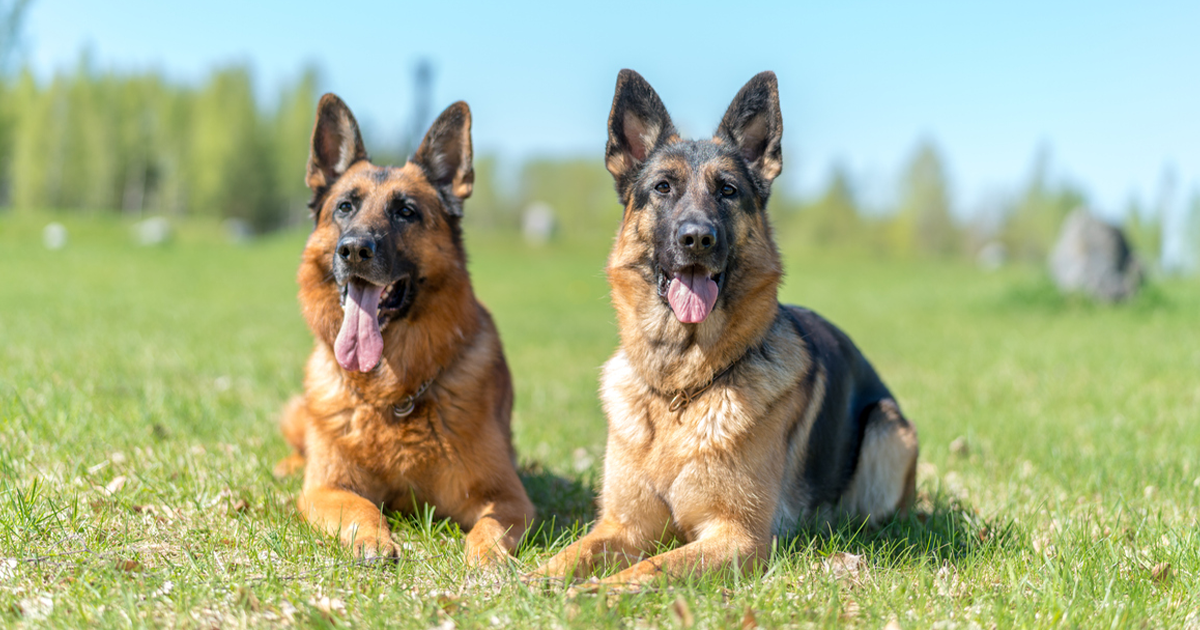Welcome to the BarkPost guide to dog breeds where we belly flop straight into the depths of dog breed origin, evolution, and purpose. Follow along each week as we publish new guides that highlight the strangest, most interesting, and most surprising stuff about these creatures who have been our best buds the last 30,000 years.
Intro / Overview
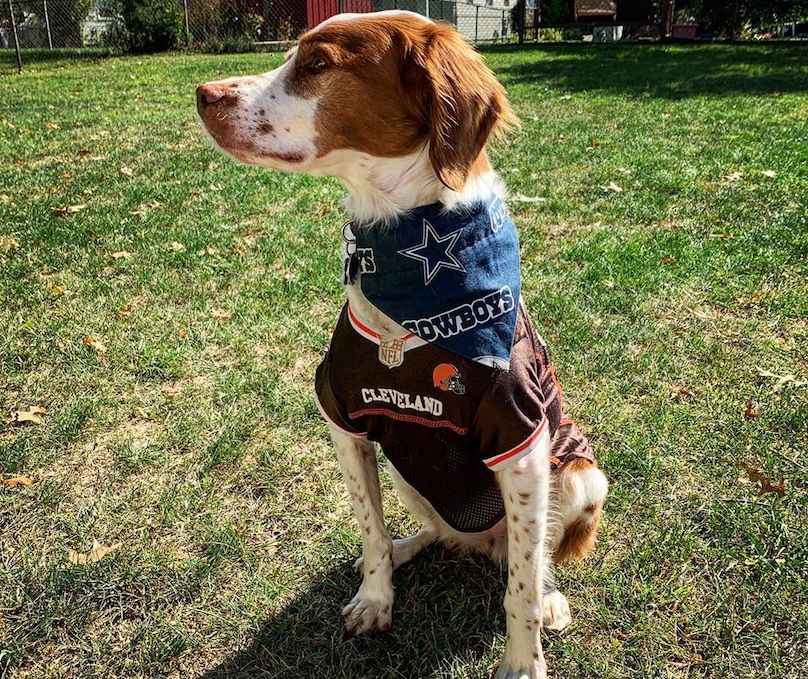

(All dogs are individuals, which means any single dog from any breed can be any number of ways, both good and not so good. Keep that in mind as we discuss breed generalities!)
Brittanys are the complete package: beauty, brawn, and brains! This stunning, medium-sized breed is recognizable for their vividly patterned white, orange, and liver coat. Brittanys are also known for their boundless energy and enthusiasm. They love to play with their pup parents and are eager to please. This outgoing, upbeat, and fun-loving pup is sure to be the life of any party!
Furthermore, the Brittany is an exemplary member of the Sporting Group. A notable feature of this breed is their admirable versatility as a working dog. Their intelligence, athleticism, energy, and willingness make Brittanys extremely trainable in virtually any sport. This breed is the ideal companion for pup parents with an active lifestyle. Read on to learn about the bright Brittany!
Also Known As…
Brittany Spaniel. Brittany Dog. L’épagneul Breton. Brittany Wiegref. Epagneul Breton. French Brittany. “There are Spaniels and then there are…Brittany Spaniels, if you know what I’m saying.”
Origins
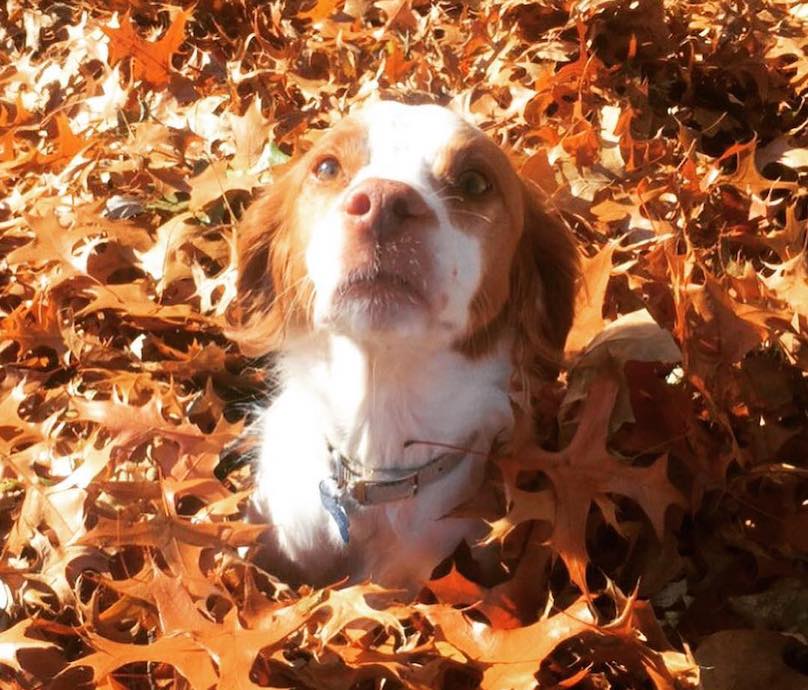

The history of this bright and beautiful breed spans centuries. The earliest record of Brittany-like dogs were found in 17th century French paintings and tapestries. These artifacts showcased stunning orange and white dogs hunting and retrieving game. The AKC notes that the “frequency with which Brittany-type dogs appear in the portraits and pastoral scenes by French, Flemish, and Dutch masters of the period suggest that liver-and-white pointing dogs were quite common in Western Europe.”
Brittanys were originally bred as gundogs, but are considered very versatile working dogs. Brittanys were especially popular among medieval peasants, poachers, and those who valued thriftiness. Those that were unable to support a full kennel capitalized on their versaility by placing a premium fee on all-purpose pups, such as the Brittany. This admirable versatility and working ability remains present in today’s Brittanys. Brittanys excel at a number of activities, including hunting, showing, and agility.
This all-purpose pup was introduced to the United States in 1931. By 1934, the Brittany (then called the “Brittany Spaniel”) joined the AKC‘s roster of registered breeds. While the French still consider the breed to be a spaniel, the AKC considered Brittanys so be more pointers than spaniels. In response to these new considerations, the breed’s American name was shortened to Brittany in 1982. Now, the breed is one of the most successful and popular field dogs in the United States. Hundreds of Brittanys have even won the coveted AKC Dual Champion title. Is there anything a Brittany can’t do!?
Size
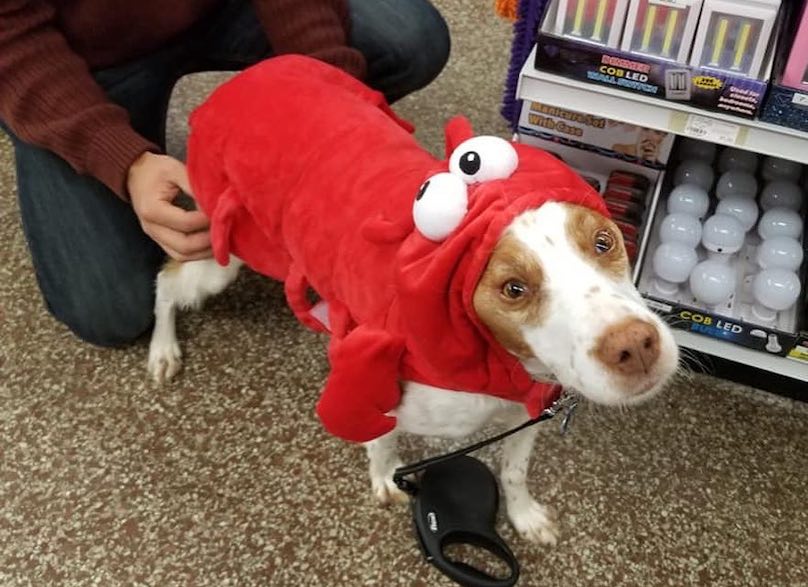

On average, Brittanys stand between 17.5 and 20.5 inches at the withers (tops of shoulders).
Weight Range
Brittanys typically weigh 30 to 40 pounds.
Personality
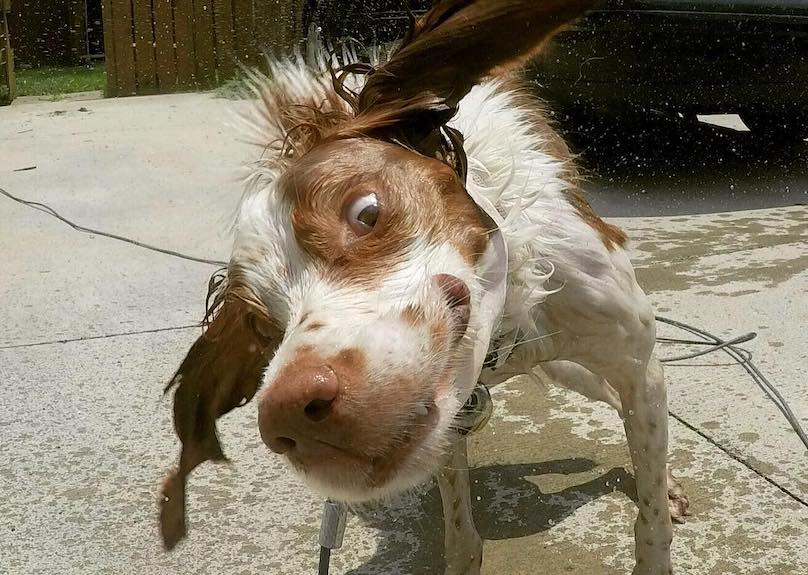

In a pup pageant, the Brittany would be deemed “Miss Congeniality.” Brittanys are very gregarious and love making friends with both humans and canines. They are so happy and fun-loving, who wouldn’t want to be their friend? These social pups love spending time with their families and do not enjoy being left alone.
As mentioned, Brittanys are bursting with enthusiasm and energy. They bring this exuberance into their playtime, training, work, and exercise. Brittanys are also big softies. This breed has a sensitive nature, making them especially reactive to harsh punishments (such as scolding and spanking). Brittanys strive to please their pup parents and seek praise and attention.
Intelligence / Trainability
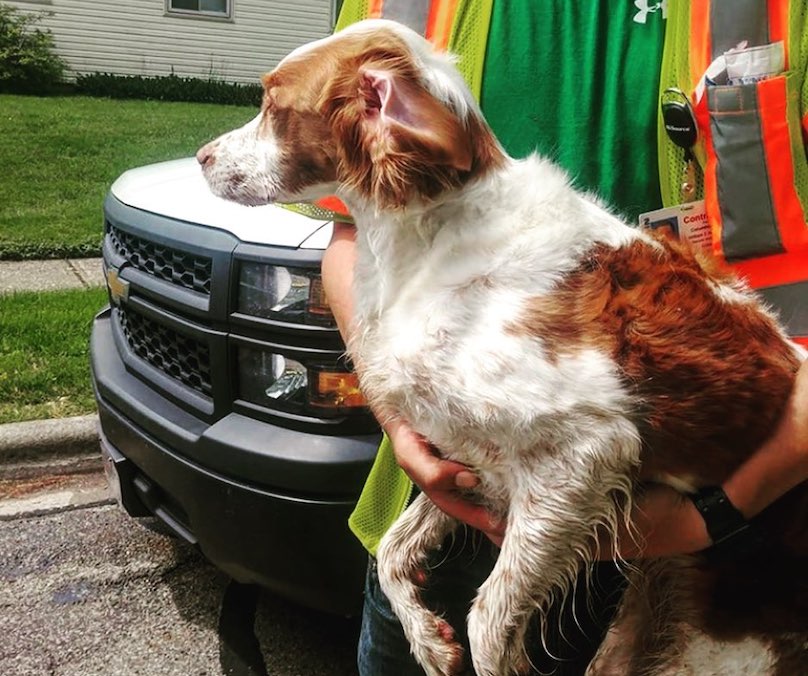

Brittanys are brainy! This breed is not only smart, but also eager to learn. Brittanys’ intelligence, willing disposition, and boundless energy makes them extremely trainable. However, patient and encouraging training is still needed with these pups. Brittanys are quite sensitive, so positive reinforcement is recommended, while harsh punishment should be avoided.
This breed’s trainability can be leveraged in a number of ways! Brittanys are known to excel at a number of dog spots, such as obedience, agility, flyball, and field trials. These engaging activities are wonderful in providing Brittanys mental and physical stimulation.
Ideal Environment
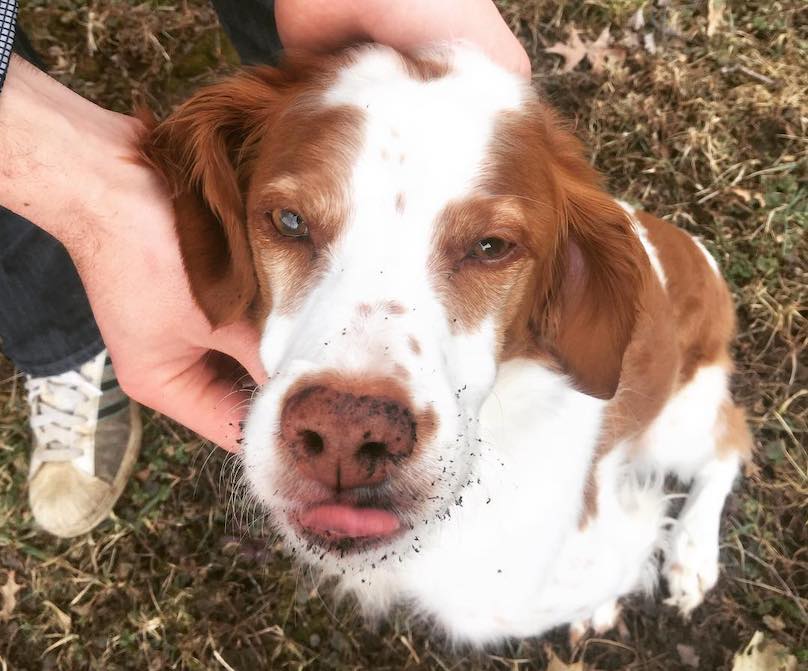

As we mentioned, Brittanys sure are energetic! They love being active both while indoors and out. A Brittany’s ideal home would be a house with a large, fenced yard where she can burn off energy. Because of the breed’s instinct to hunt, roam, and run, Brittanys should only be let off leash in securely-fenced areas.
This breed is not well suited for an apartment, unless paired with a pup parent who has serious dedication and time to satisfy their considerable exercise needs.
Good For Families And Kids
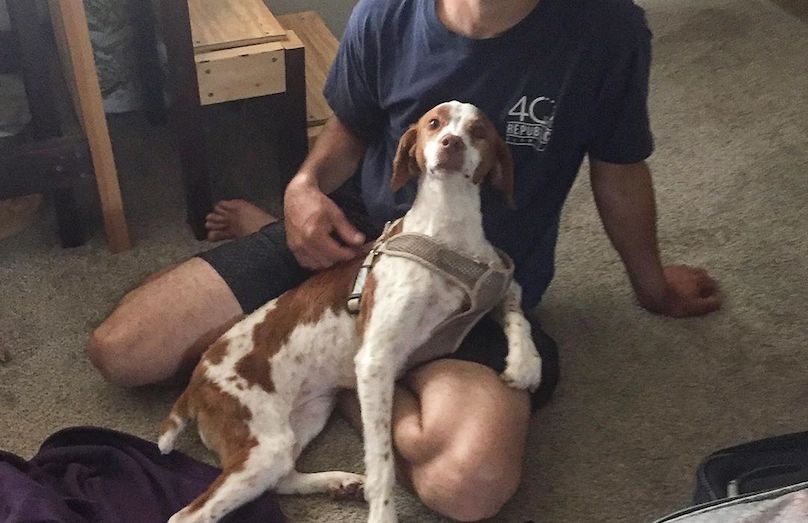

Brittanys are very people-oriented and adore being with their families. This means they do not like being left alone for extended periods. Brittanys are very sensitive, high-energy who fit best with families who have the schedule to attend to their exercise and attention needs.
These affectionate, outgoing, and upbeat pups make wonderful additions to any devoted family – even those with kids! This friendly and sweet breed is generally good with children and tolerant of some roughhousing. However, their ebullience may be too much for a small child to handle.
Average Lifespan
On average, Brittanys live 12 to 14 years.
Health


Thankfully, the Brittany is considered “a very healthy breed with few genetic health issues,” as noted by the AKC. Like any dog, Brittanys should receive routine veterinary care, ear inspections, and teeth brushings.
Energy
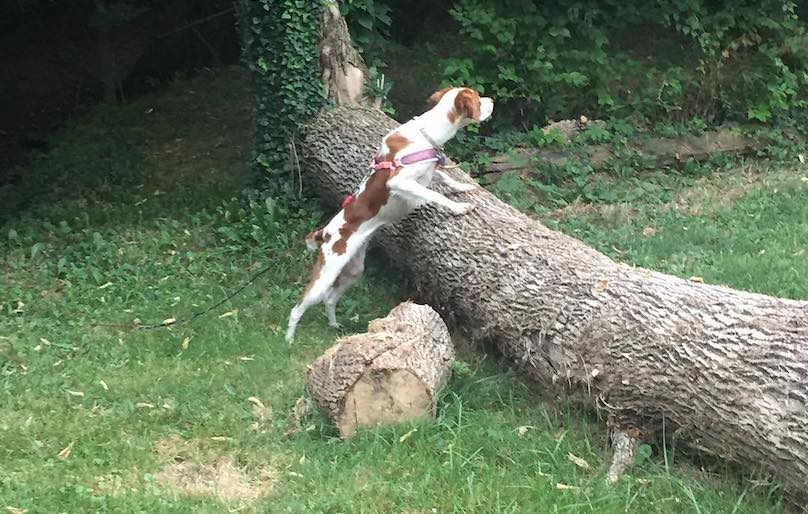

The Brittany was bred as a versatile, all-purpose hunter. Thus, this breed is incredibly athletic and energetic. The high-energy Brittany needs plenty of exercise to stay both happy and healthy. Thus, this breed pairs best with pup parents with an active lifestyle and the time to provide at least an hour of daily exercise. If Brittanys’ exercise needs are not met, they may become neurotic, hyperactive, and destructive.
Indulge your Brittany’s talent and energy with hikes, brisk walks, runs, or even activities such as field trials and agility. This breed’s zeal, athleticism, versatility make them excellent companions for sports, hunting, and an active, outdoorsy lifestyle.
Friendly With…(Dogs? Strangers? Cats/Other Pets?)
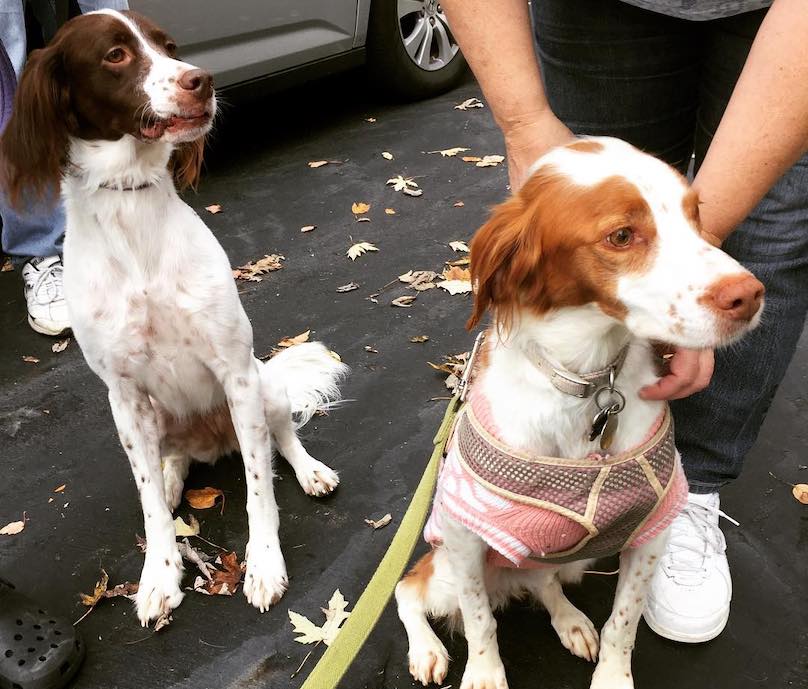

Brittanys are friendly, gregarious pups who love meeting new friends. Thus, they are generally very welcoming of strangers. Brittanys also tend to befriend other dogs and can even befriend cats, especially those they are raised with. Because of the breed’s hunting instincts, great caution and supervision should be used when Brittanys are with smaller pets.
Coat & Grooming
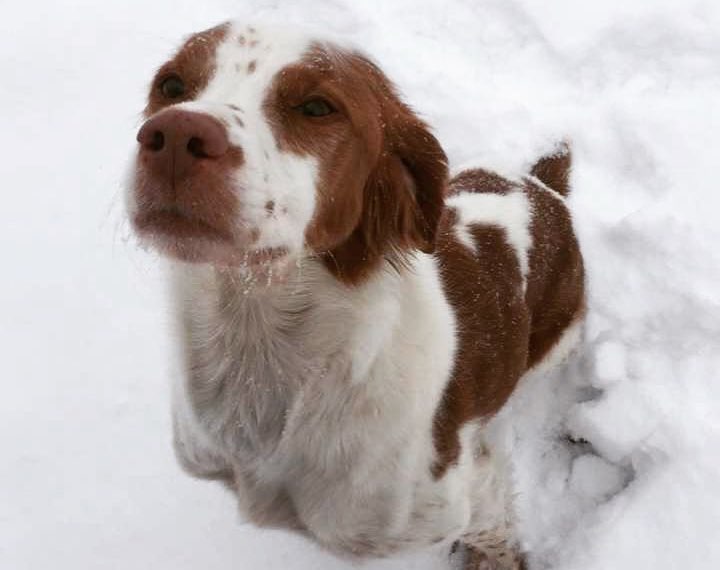

One of the Brittany’s most striking features is that gorgeous coat. This is a wavy or flat white coat typically adorned with vivid orange and liver (reddish-brown) patches. They come in a variety of color variations, such as liver and white, black and white, tricolor, and orange and white. The Brittany’s coat is designed to not absorb water or dirt – now that is ultimate #hairgoals!
Thankfully, these great looks don’t come at a great price. The Brittany’s coat requires only minimal grooming. Brushing with a soft rush or hound glove a couple times a week and occasional bathing should do the trick. Also, be sure to inspect those fold-over ears for signs of infection.
Toys Brittanys Would Like Best
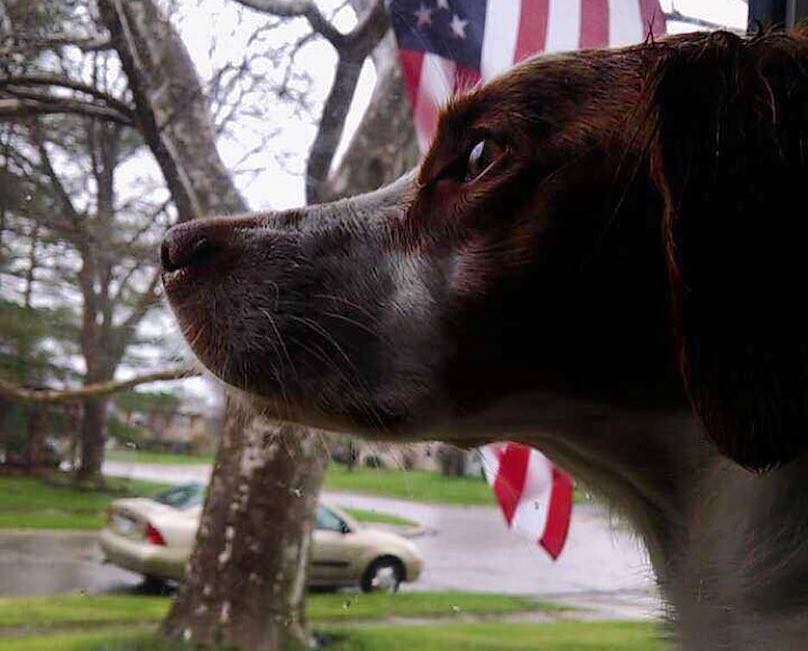

The best toys for Brittanys are those that indulge their high needs for physical and mental stimulation. Furthermore, the ideal form of playtime Brittanys is any that involves bonding with their pup parents! Make playtime an enriching and bonding experience with fetch toys and tug toys!
Playing fetch and tug-o-war will not only tire and entertain your pup, but also strengthen your relationship. Bonus points if the toy ignites your Brittany’s instincts and resembles a bird (which Brittanys were commonly trained to hunt). Check out BarkShop for fetch and tug toys in a wide array of designs and sizes!
Recommended Diet Or Supplements


Brittanys should be fed a high-quality dog food. It is also important to ensure that this dog food is tailored to the dog’s age range (e.g. puppy, adult senior).
While this breed is quite healthy, a daily joint supplement can go a long way toward keeping them free of aches and pains as they age.
Glucosamine Supplement For Hip & Joints
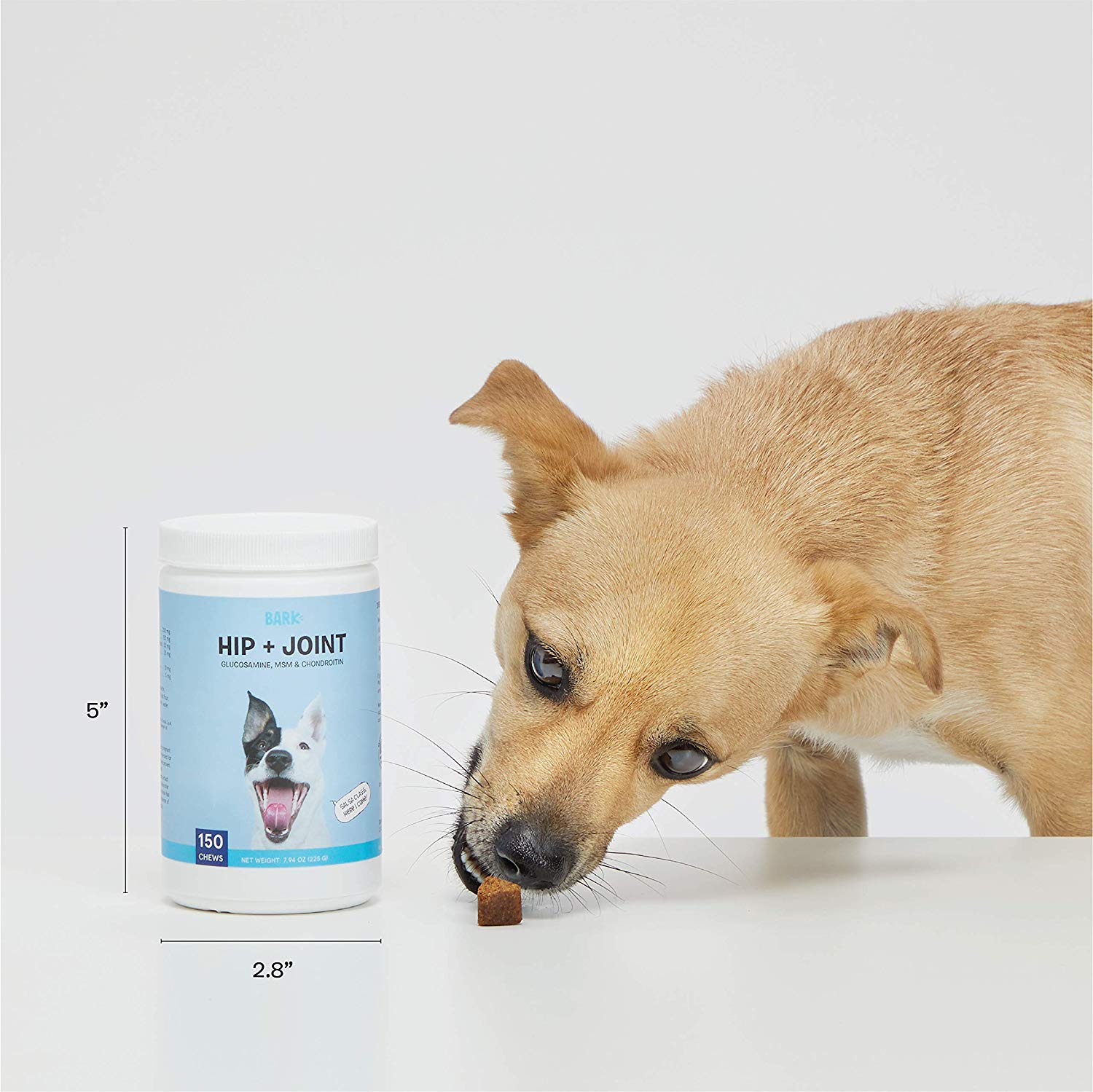

Bark Hip + Joint soft chews are veterinarian-formulated in the USA with powerful ingredients like glucosamine, MSM, chondroitin, and hyaluronic acid to keep your dog’s joints strong, flexible, and pain-free. ($32.99.)
Recommended Products
For Brittanys with joint issues – or any dog who just loves to lie around! – a nice comfortable bed with orthopedic support is probably a good idea.
Orthopedic Ultra Plush Memory Foam Dog Bed
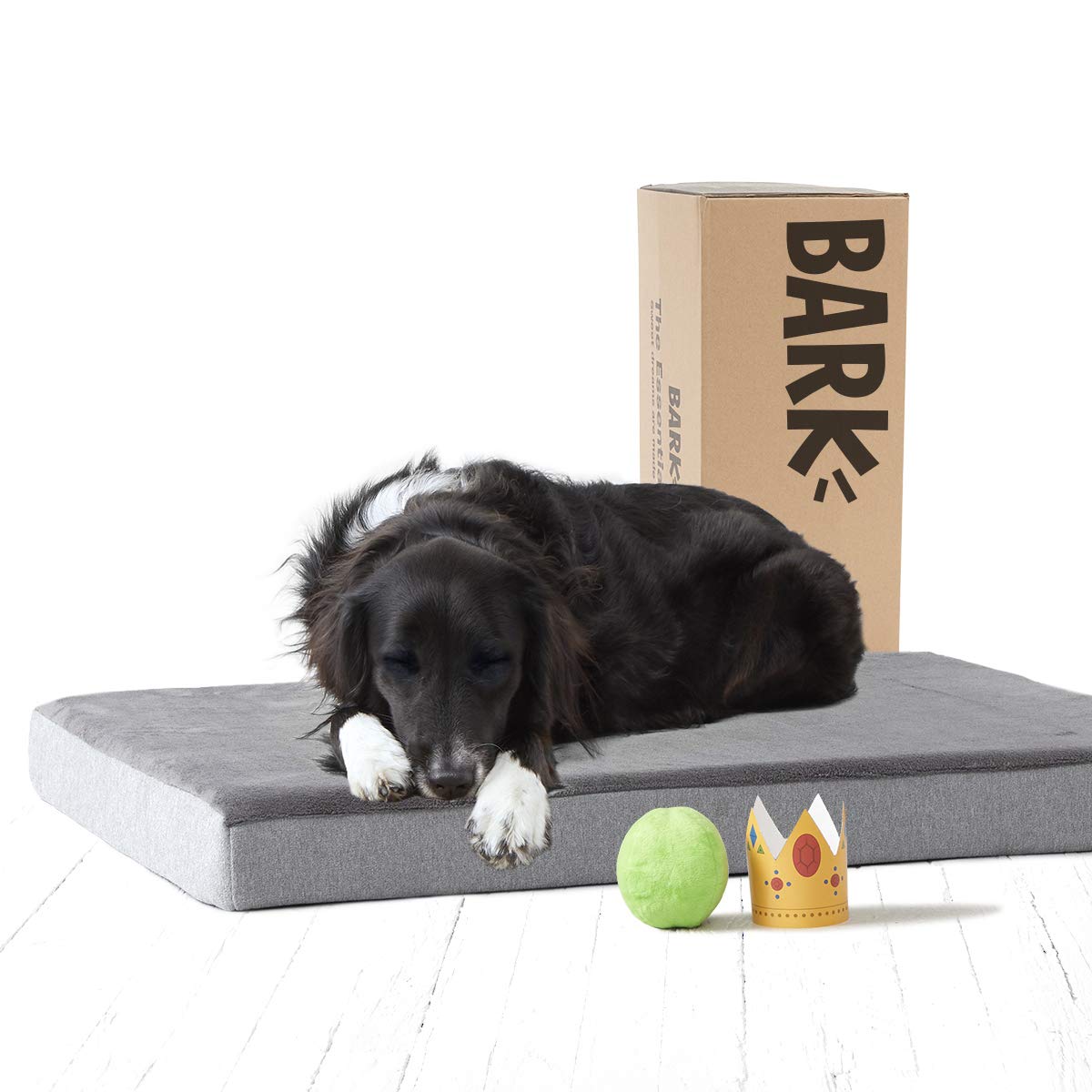

Orthopedic dog beds from Bark are made with ergonomic memory foam and gel foam to cradle joints and relieve the stress on pressure points. They help ensure your best friend gets a good night’s sleep, free from body aches. Just be sure to order the XL! ($64.99.)
Notable Rescues To Find The Brittany Of Your Dreams
- American Brittany Rescue Inc
- National Brittany Rescue & Adoption Network
- Brittany Rescue In Texas
- American Brittany Rescue Org
- Adoptable Brittanys on Petfinder
Notable Instagram Brittanys
Darla @darlathebrittany
Harley @harley.the.gnarley
Lucy @lucy_the_brittany_dog
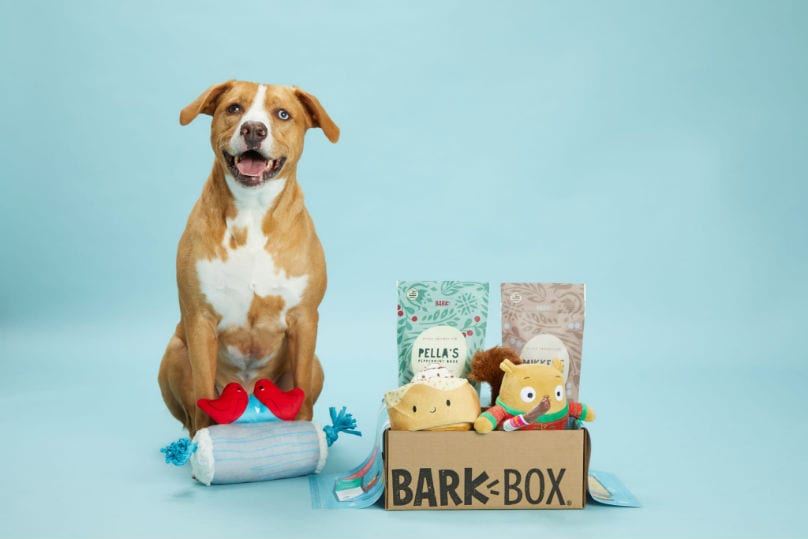

***Looking for a gift to blow your Brittany’s mind? Spoil them with BarkBox! Every month BarkBox delivers 2 original toys, designed in-house, 2 full bags of all-natural treats, and a chew. Sign up here and receive a free extra toy every month. <– This deal is worth up to $120 in value if you sign up for a 12-month subscription! 🙂
Featured image via DarlaTheBrittany/Instagram
Want More Spaniel Breed Guides Like This?
English Cocker Spaniel Breed Information Guide


